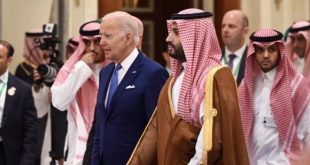A new survey of leading intellectuals shows many of them are preoccupied with trying to answer: who are we?
What is preoccupying the world’s leading minds? It is an audacious question for sure. Some might say leading physicists will be concentrating on physics, leading philosophers on philosophy, historians on history and so on.
And yet when we look back on different eras, we can sometimes spot a thread – the preoccupation with truth in ancient Athens, with beauty in Renaissance Europe, with political “reason” during the Enlightenment, with scientific progress during the industrial age. There is, I believe, likewise a new preoccupation lurking in the biggest brains of our time, and that theme is summed up in one word – identity.
What possible basis could I have for making what may, I realize, sound like a wild claim? Well, in a know-nothing political age Prospect, the magazine I edit, felt it would be timely to salute intellectual effort by this week publishing a list of 50 top thinkers. They have been picked on the basis of fruitfully engaging with the problems of our times, giving weight to originality, impact, and communication. We have consulted closely with global authorities on economics, history, and science about their peers, and considered the books and ideas we can see making waves. The biggest of these waves – by far – are those concerning identity.
That’s not the only change since the magazine produced its first global hit parade in 2005. Some differences are stark. For example, whereas in 2005 there were 90 men and just 10 women, today the gender mix is essentially 50-50. And certain subjects have gained prominence exactly as you’d expect: climate science and especially tech.
There are other changes, too, that you’d expect. In economics, the brightest minds are asking newly disruptive questions. Dani Rodrik is included for his erudite exploration of why the promise of globalization has disappointed so many, as well as Anne Case and Angus Deaton for elucidating the human toll of American capitalism. Economic historian Adam Tooze features for exposing the limitations of nation-based macroeconomics, as does Hyun-Song Shin of the Bank for International Settlements for starting to sketch the alternative of a border-straddling macro-financial perspective.
All interesting stuff, but a natural response to the crash. The bit I didn’t see coming is how many big minds would be consumed by variants of a single question: who are we? By my reckoning, it is around half. What exactly, disparate thinkers are asking, does it mean to be American, Muslim, Indian, female, black or simply human?
Starting with that last and the most general question of identity, primatologist Frans de Waal has lit up the human condition by living with apes, and the fast-rising philosophical star Amia Srinivasan has written brilliantly on octopuses and termites, noting how often people have looked at insects and “seen themselves”. There’s room, too, for geneticist Robert Plomin, who believes modern science has done for the idea of the blank slate, but refuses to lapse into genetic determinism, and instead focuses on how society can even out the odds for people with different DNA.
As it happens, the first three names on the list – and they are just alphabetical for now, with a public vote to pick the top 10 open – are all wrestling with identity. Naomi Alderman’s novel Disobedience, about a London rabbi’s bisexual daughter, explores how faith communities can find space for difference; Syrian architect Marwa al-Sabouni explains how deadly walls of misunderstanding in Syria grew up due to a dearth of public spaces; philosopher Kwame Anthony Appiah reconciles the importance of grounded identities with the need to protect vulnerable groups.
That last need is made all the more pressing by the cheerleader for racism in the White House. A rare journalist on the list is Ta-Nehisi Coates, in the summer the argument of his influential Atlantic essay The Case for Reparations finally reached Congress. Ghanaian-born, US-based novelist Yaa Gyasi is here for Homecoming, which makes sense of modern America by tracing its story forward from the nation’s original sin of slavery. Back in Europe, Cas Mudde makes the grade as the pre-eminent scholar of the identity-based populist backlash. Closer to home, David Olusoga features because of writing and broadcasting that forces Britain to rethink a troubling imperial past.
Coming from a very different perspective is JD Vance, a conservative venture capitalist from the wrong side of the tracks. His memoir Hillbilly Elegy sympathetically locates the roots of the rage of the US’s white working-class to grim conditions like those he grew up in. Then there is social psychologist Jonathan Haidt, who riles leftwing campus activists by pointing to evidence about how feelings can lead you astray and urges them to clamber out of deep culture-war trenches.
The work of many of our other top thinkers – critic Sarah Churchwell, psychoanalytic scholar Jacqueline Rose, novelist Arundhati Roy, and philosopher Kate Manne – all engage with gender or national identities. The precedents are not happy: religious, racial and national identities have come to the forefront of thinking during war, strife or dictatorships. Until recently, they wouldn’t have loomed so large on any plausible list of top thinkers drawn up in the west.
It may be tempting to imagine their prominence is due to multiculturalism. But the dates don’t work. Western societies have been growing more diverse for generations, and the sharpened sense of difference has been there since 9/11 at least. What has changed more recently is rampant insecurity, a product of tough economic times and the decline of western nations used to being top dogs. Some are left hankering to take back control or make their country great again. But in the face of nostalgic chauvinism, the lot of the biggest minds seems to be to turn inwards – and wonder who they really are.
By Tom Clark, the editor of Prospect magazine.
 Alghadeer TV Alghadeer TV
Alghadeer TV Alghadeer TV
